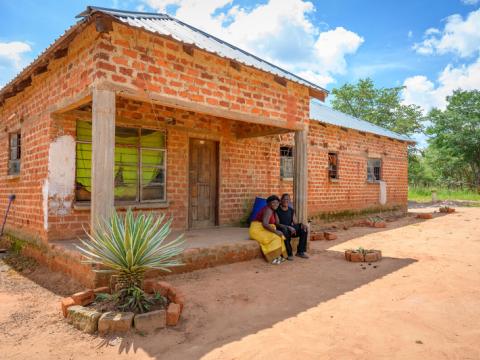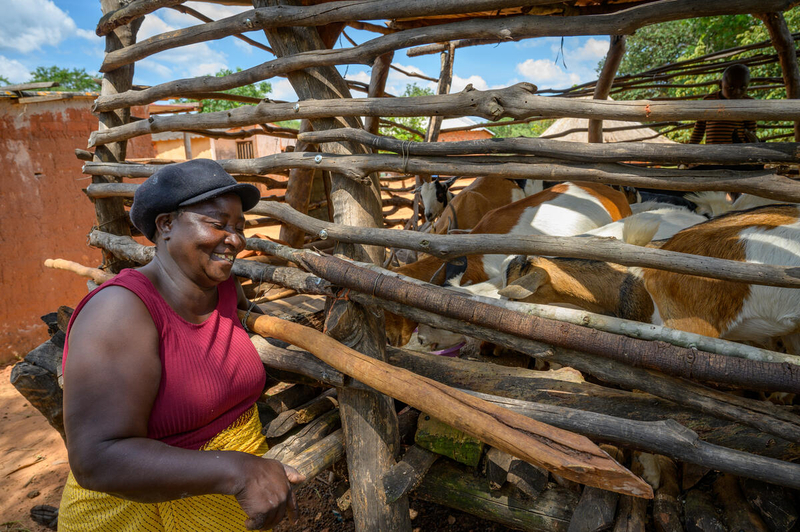Jane Reclaims Her Livelihoods Through Empowered Worldview Model

In 2015, a lifetime of poverty began to change for Jane Phiri, now 54. World Vision had come to her community in 2011, but initially, people in the community didn’t trust them. However, Jane started to notice the positive impact on those who did get involved. She reflects, “If I had started working with World Vision in 2011, I could be somewhere by now.” Deciding not to wait any longer, she enrolled in World Vision’s livelihoods program.
“Before, as long as we had life, that was OK,” Jane says. She and her husband, Samson, farmed and raised animals just as their parents did before them. Sometimes she would sell produce or an animal to buy something needed immediately, but she never saved. They lived “hand to mouth,” she recalls.

The first step Jane took in the livelihoods program was joining a savings group. She learned that even saving a small amount could make a difference. She started by saving 1,000 kwacha, about $50. With her savings, she began buying goats to resell. This was successful for a time, but she decided to diversify her livestock. Jane now raises pigs, sheep, and has built a fishpond filled with tilapia. She estimates that when she sells her tilapia next month, she could earn as much as 30,000 kwacha, nearly $1,500.
Alongside her farming efforts, Jane participated in a program called Biblical Empowered Worldview, which teaches that every person is created in God’s image, capable of achieving great things. Before this training, Jane thought, “God created me to be poor,” but now she believes, “We can use what God gave us to move ourselves up.” The program also promotes love, respect, and support within families, and caring for nature as part of God's creation.
Initially, Jane’s livestock raising was modest; she’d raised goats before but only managed about 10. “I didn’t have the skills to raise more than that,” she admits. After attending lessons sponsored by World Vision through a local vet clinic, her herd grew to 75 goats. She then expanded her farm to include pigs, sheep, chickens, turkeys, and a fishpond filled with tilapia. She also learned farming techniques through “Farming God’s Way,” which helped her increase her maize yield from enough for 100 bags of 50 kg each to 900 bags.
In 2014, Samson suffered a stroke, but he was able to continue working in the fields for a while. By 2017, his health worsened, and he could no longer join her. Thanks to the Biblical Empowered Worldview, Jane knew how to honour and respect him despite her new role as the family’s primary breadwinner. “That creates a household with love,” she says.
Jane’s love and hard work have supported her seven children’s education, mainly through selling livestock. Her caring attitude extends beyond her family to their environment. A greenbelt of trees now surrounds her home—something that was not always the case. Years earlier, they cut down trees for firewood and possibly for charcoal when that practice was still legal in Zambia.
However, after a windstorm knocked down their original home’s roof, Jane realised how much the trees contributed to their safety and environment. She remembered what she learned from Biblical Empowered Worldview: “These are God’s creation. They’ve got a huge part to play in God’s creation.” She and her family carefully nurtured the resprouting stumps, allowing the trees to grow back healthily. Now, the trees help prevent soil erosion, provide shade, and their goats eat the lower branches, reducing the need for cutting more trees. Jane sees these trees as vital to the ecosystem of her home, illustrating how caring for creation benefits everyone.
Jane’s journey from poverty to prosperity demonstrates how faith, education, and community support can transform lives, creating a sustainable and hopeful future for her family.